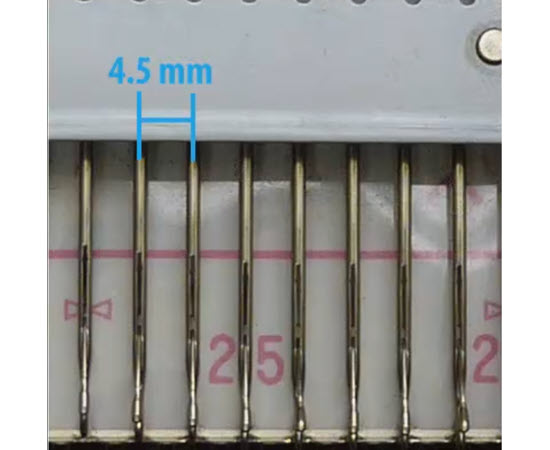
Needle Pitch
The distance between needles in mm
What is needle pitch?
The gauge (pitch) of a knitting machine is determined by the distance between the needles.
If you are a hand knitter, think of the different machine gauges as different hand knitting needle sizes.
NOTE:
Although the machine pitch determines the yarn you can use, the actual stitch sizes (knitting gauge) is controlled with the tension dials on the machine.
In hand knitting terms, think of this as choosing a needle size within a RANGE of needles.
The pitch of your knitting machine determines the range. The tension dials determine the needle size.
The gauge (pitch) of a knitting machine is determined by the distance between the needles.
If you are a hand knitter, think of the different machine gauges as different hand knitting needle sizes.
NOTE:
Although the machine pitch determines the yarn you can use, the actual stitch sizes (knitting gauge) is controlled with the tension dials on the machine.
In hand knitting terms, think of this as choosing a needle size within a RANGE of needles.
The pitch of your knitting machine determines the range. The tension dials determine the needle size.
Common Terms:
| 3.6mm | Fine Gauge |
| 4.5mm | Standard Gauge |
| 5mm | Passap |
| 6mm 6.5mm 7mm |
Mid-Gauge |
| 9mm | Bulky-Gauge |